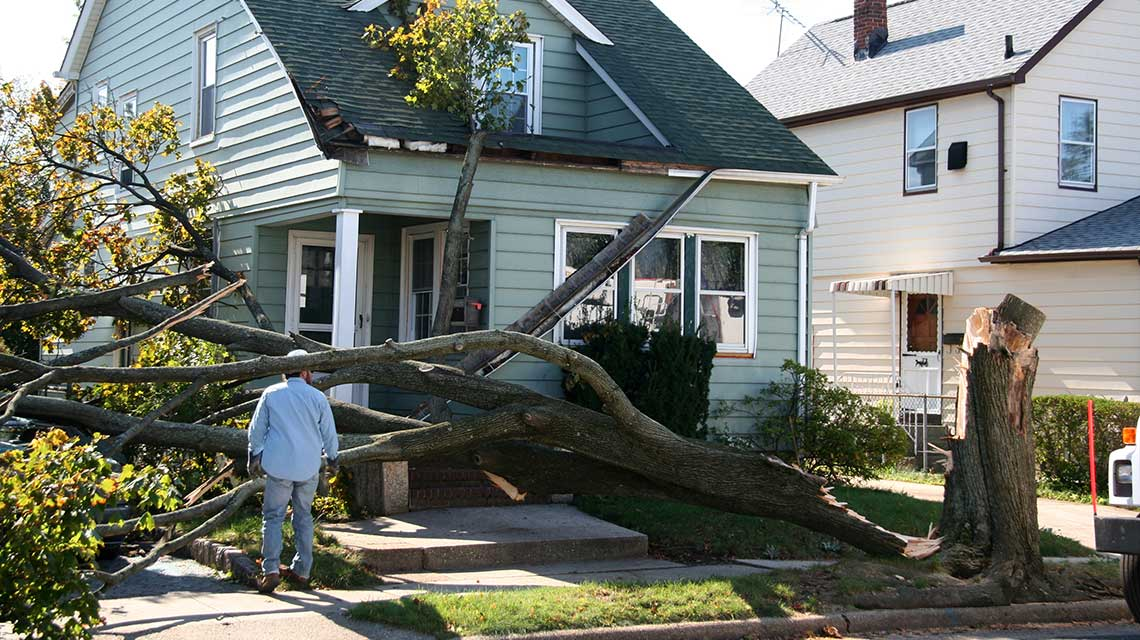As a homeowner, it is always wise to think of what may seem an impossibility and that is how to prepare for a natural calamity. As a common lifestyle, the head of the family should collect important financial documents, take photos of the interior and exterior of the home, and keep them updated. Important documents most needed include:
- Bank account information (checkbooks/saving account)
- Insurance policies
- Identification documents, e.g., driver’s license, Medicare card, etc.
- Social Security cards
- Wills also identifying the Powers of Attorney document
You will need these documents to file claims, catch up on bills, and take care of the family. Remember to call your insurance agent to find out what steps you need to take to make a claim, if needed. Invest in an inexpensive power bank device to keep your smartphone charged so that you can leave a contact phone number if your home is uninhabitable and you are staying elsewhere.
When Mother Nature decides to strike, home safety tips should always be in place. No matter where you live, naturals disasters are prone to arise, such as what we have already seen in 2017 – tornadoes, hurricanes, flooding, wildfires, and hailstorms.
FEMA Tips
In any natural disaster situation, FEMA offers free brochures and publications on how to protect your home from natural calamity and what to do if you must evacuate. FEMA recommends practicing the “Five Ps of Evacuation.”
- Papers: as we have previously identified, collect important documents
- People: make sure family members and pets are moved to safety
- Medications: gather all prescriptions, hearing aids, eyeglasses, etc.
- Valuables: bring most memorable photos, heirlooms or anything considered irreplaceable
- Personal Items: take non-perishable food products, water, change of clothing and other emergency supplies.
Mother Nature is unpredictable. But you can take preventative measures to keep yourself and the family safe, also avoiding heavy damage to the property.
Hailstorm Protection
Let’s look at each of these calamities by referring to each one. The least expected storm is a hailstorm. Hailstorms cause damages in the millions and accounts for about 40% of all insured losses. Even though these ice packed rocks are unpredictable, there are things you can do in case a sudden hailstorm pops up:
- Naturally, stay indoors
- Keep vehicles inside a covered area
- Store outdoor furniture, equipment, tools, and toys inside a shed
- Close your indoor window blinds, drapes, and curtains in case it shatters and to protect everyone from shattering glass.
Naturally, after any storm, check your roof, gutters, and shingles for any damage.
Hurricanes/Tornadoes
Whether a storm starts as a tornado and changes to a hurricane or a tropical storm as we have recently witnessed and experienced, their wind and rain affects are the same – damaging and life threatening!
There are safety tips that can help to protect your home from these natural calamity events:
- Reinforce doors and windows by boarding them up. Secure appliances, etc. with cabling or metal strappings.
- Remove or trim trees and bushes that could cause damage from high winds.
- Repair any exterior of your home that needs work, e.g., spouts, gutters, and roofing.
- Siding can be secured by using fasteners or other types of tools.
- Prepare a disaster supply kit as identified by the Red Cross and other organizations.
- Remember to take photos.
Earthquake
There are natural earthquakes and fracking earthquakes. Many people are unaware that earthquakes occur nearly in every U.S. state, either as a slight tremor or as a strong magnitude quake. The tips for protecting your family from an earthquake are provided by the Red Cross.
To protect your home in advance of an earthquake, prepare your home with the following:
- Don’t hang heavy pictures, mirrors, lights, or other wall accessories near where people lie or sit.
- Heavy furniture should always be closest to the floor.
- Strongly anchor tall, freestanding bookcases or cabinets to keep them from toppling.
- Ask home repair persons about strengthening sliding glass doors, canopies, etc.
- Bolt water heaters and other gas appliances with wall studs.
To help protect the family, the Red Cross suggests that you get under a sturdy piece of furniture and hold onto it. Depending on where you live, there are seismic retrofit actions you can take. Property owners are now turning to PACE as a financing option for seismic upgrades. As a serious liability, earthquakes can leave home owners very negligent.
Wildfires
In 2017, the U.S. has set a record for wildfires. Whether caused by lightning, campers, vandalism, or other incidences, wildfires eat our homes and surrounding property landscapes. There are safety practices that can help to reduce how our homes will be impacted:
- Install fire detectors and keep fire extinguishers handy.
- Keep trees trimmed and cut-back bushes close to the house.
- When building your home, invest in fire-resistant building materials. This may also provide an insurance discount.
- Install indoor fire sprinklers.
- Cover exterior crawl spaces or holes with wire mesh which keeps embers from blowing into the home.
Flooding
So far in the first half of 2017, flooding has produced record setting catastrophes in the U.S. (Harvey/Irma forecasted $290 Billion economic damage). In some U.S. states, flood insurance is a requirement, but in the remaining states, flood insurance can be an expensive option. To protect your home from natural calamity flood events, take precautions like the following:
- Begin an evacuation plan and practice it regularly.
- Listen to local authorities about evacuation plans and shelters.
- Place many documents and valuables in a watertight safe.
- Buy emergency and first-aid supplies and keep them updated.
- Keep flashlights available and keep extra batteries.
- If trapped in your home, move everyone to the highest floor.
Disaster events can occur sometimes without warning; therefore, it is best for yourself and the whole family to be as prepared as possible by staying informed, make an advanced plan, and take the appropriate action to protect your home from a natural calamity.

